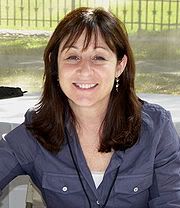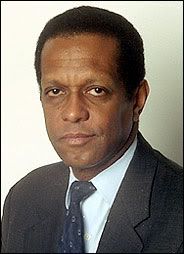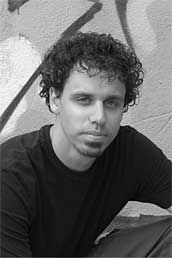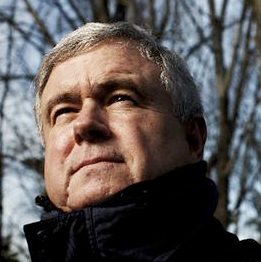Not much has budged me from my sick bed in the past two weeks (pneumonia and complications), but I couldn't miss coverage of Thursday's ceremony at The National Press Club giving the 6th Annual Ridenhour Awards to four brave Americans who represent citizens at their best. (Deep Harm wrote an excellent Diary on the subject that was read and recommended by far too few here.)
The awards are named for Ron Ridenhour, the Vietnam veteran who blew the whistle on the 1968 massacre of civilians at My Lai. You can read his 1969 letter to selected members of Congress here. In part based on interviews with Ridenhour, Seymour Hersh won the Pulitzer Prize for his coverage of the massacre, a story he had a devil of a time getting published.
Ridenhour later became an investigative journalist himself. He won a 1987 George Polk Award for coverage of a tax scandal in New Orleans. Ridenhour died in 1998. You can view a tribute to him here. Begun by the Nation Institute and the Fertel Foundation in partnership with the Project on Government Oversight, the Fund for Constitutional Government, and the Government Accountability Project, the Ridenhour Prizes seek "to recognize those who persevere in acts of truth-telling that protect the public interest, promote social justice or illuminate a more just vision of society."
The winners this year:
 Jane Mayer - the Ridenhour Book Prize - for her fierce look deep into The Dark Side: The Inside Story of How the War on Terror Turned Into a War on American Ideals.
Jane Mayer - the Ridenhour Book Prize - for her fierce look deep into The Dark Side: The Inside Story of How the War on Terror Turned Into a War on American Ideals.
 Bob Herbert - The Ridenhour Courage Prize - for his columns focusing on injustice and abuse on the Op-Ed pages of The New York Times.
Bob Herbert - The Ridenhour Courage Prize - for his columns focusing on injustice and abuse on the Op-Ed pages of The New York Times.
 Nick Turse - special Ridenhour Prize for Reportorial Distinction - for his searing article in The Nation of December 1, 2008, "A My Lai a Month," which confirmed what many have long thought: that the killings at My Lai were not an aberration of the Vietnam War, but, in fact, all-too-common occurrences.
Nick Turse - special Ridenhour Prize for Reportorial Distinction - for his searing article in The Nation of December 1, 2008, "A My Lai a Month," which confirmed what many have long thought: that the killings at My Lai were not an aberration of the Vietnam War, but, in fact, all-too-common occurrences.
 Thomas Tamm - the Ridenhour Prize for Truth-Telling - for his courageous willingness to drop a dime on the Cheney-Bush administration's illegal interception of phone calls and e-mails.
Thomas Tamm - the Ridenhour Prize for Truth-Telling - for his courageous willingness to drop a dime on the Cheney-Bush administration's illegal interception of phone calls and e-mails.
Each of these is worthy of an entire essay, but let me focus on Thomas Tamm. Because his story, as reported last December by Michael Isikoff, in Newsweek, is not untypical of what happens to whistleblowers in America. You can view or read his Thursday interview with Amy Goodman here.
From a subway payphone in 2004, Tamm, a lawyer at the Department of Justice anonymously called The New York Times reporter Eric Lichtblau, informing him that he had knew the National Security Agency was illegally spying on U.S. citizens. His efforts to bring this to the attention of his bosses and congressional committees had failed, so he called Lichtblau and later met with him and Times reporter James Risen. The two won a Pulitzer for their belated story on the subject - appearing in December 2005. As a result of the exposé triggered by Tamm (although he wasn't the only source of the story), Congress subsequently passed a weak and much-criticized "reform" of the Foreign Intelligence Surveillance Act.
So what happened to Tamm? The guy whose uncle and father were FBI agents, who led the Young Republicans when he was at Brown University and who had a stellar career at the DoJ until he decided to expose the criminal behavior of the government he served? He got caught. And he's since been treated like a criminal. As Isikoff wrote:
The FBI has pursued him relentlessly for the past two and a half years. Agents have raided his house, hauled away personal possessions and grilled his wife, a teenage daughter and a grown son. More recently, they've been questioning Tamm's friends and associates about nearly every aspect of his life. Tamm has resisted pressure to plead to a felony for divulging classified information. But he is living under a pall, never sure if or when federal agents might arrest him.
Exhausted by the uncertainty clouding his life, Tamm now is telling his story publicly for the first time. "I thought this [secret program] was something the other branches of the government—and the public—ought to know about. So they could decide: do they want this massive spying program to be taking place?" ... If somebody were to say, who am I to do that? I would say, 'I had taken an oath to uphold the Constitution.' It's stunning that somebody higher up the chain of command didn't speak up."
Not so stunning considering who those higher up the chain of command were.
What is stunning is that Tamm, who has gone deeply into debt, lost his job and been afflicted with depression as a result of the harassment he's suffered at the hands of the government, is still uncertain whether he will be indicted under the Obama administration. Here's a fellow who should have had a front-row seat at Obama's inauguration or gotten a glowing mention and maybe a fist-bump when the President spoke to a joint session of Congress in February.
As Joe Conason writes in today's Salon.com:
If the telecommunication companies that helped the NSA to violate the law could be immunized with Obama's vote last year, if the Obama administration is reluctant to prosecute former Bush officials for their alleged crimes, and if the president and the attorney general recognize that illegal wiretapping is an intolerable offense against the Constitution, then it is long past time to lift the burden of investigation from Thomas Tamm. Let the government acknowledge what by now is obvious. No fair-minded jury would convict him, and none ever should.
Attorney General Eric Holder should make a point of informing the nation that Thomas Tamm will not be prosecuted. And President Obama ought to reinforce that Ridenhour Prize with a Freedom Medal. He ought also to take a stand in favor of Rep. Chris Van Hollen's proposed legislation, H.R. 1507, the Whistleblower Protection Enhancement Act of 2009, as he was encouraged to do earlier this month. While this law would not rescue whistleblowers of the past like Tamm, it would shield those who, in the future, act as he did. That's a message that ought to made loud and clear.


